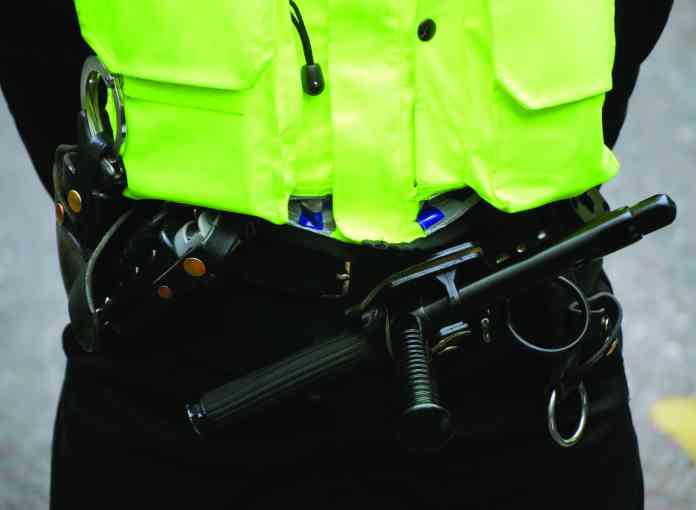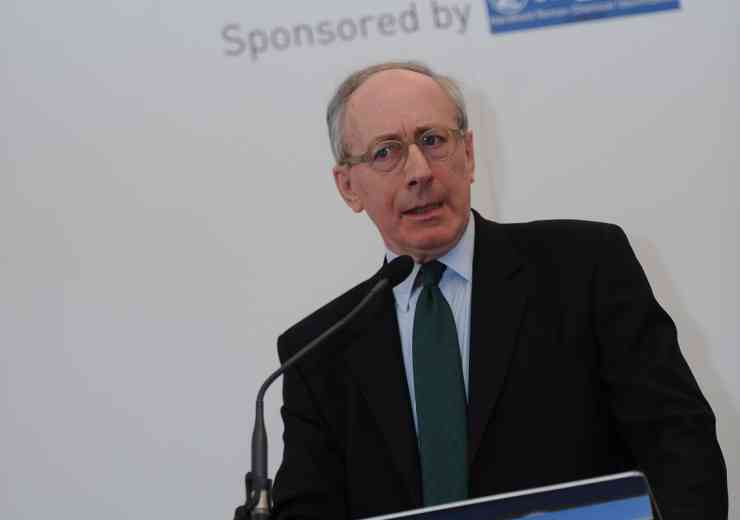
CTB Interview: DCS Scott Wilson
Ahead of the Security & Counter Terror Expo, Counter Terror Business posed some questions to Scott Wilson, who will be presenting his Keynote Address on the international expansion of Protect and Prepare on 3 May
The aim of the UK’s CONTEST strategy is to reduce the risk of terrorism to the UK. Since 2010, how successful do you feel that the strategy has been in protecting the UK from a growing terrorism threat?
Since 2010 there has been a significant increase in the threat level both in the UK and in many other western countries. The Syrian civil war has been a massive game changer and it has affected pretty much every country with a Muslim population. In the last four years – 2013-2017 – we have seen a huge surge in Syrian related threat both at home and overseas. The threat is complex, diverse and one we have not seen before and is challenging for many countries around the world. On average, we are arresting a terrorist every day in the UK and we are charging and convicting more people for terrorism offences than we have ever done before.
An effective counter terrorism strategy needs to be able to monitor, investigate, capture and prosecute the adversary to prevent attacks, imprison those who pose a threat and reduce levels of terrorist activity. However, at the same time the strategy must build relationships with communities and businesses and reduce the fear of terrorism. By all appearances this balance has been achieved through the CONTEST strategy.
As National Co-ordinator for Protect and Prepare, can you expand upon what the strategies aim to achieve?
The level of threat is complex and ranges from lone actor’s intent on carrying out crude attacks to sophisticated networks pursuing ambitious and coordinated plots. We urge the public to remain alert but not alarmed – the police service and its partners is doing everything it can to help protect people, public institutions, critical national infrastructure, as well as businesses and crowded places.
Our security measures and activities are under constant review to reflect where the threats exist and the level of threat we are facing. You will have already noticed a substantial uplift in police patrolling, particularly in the central London area. This is being replicated across the country and will continue as we seek to reassure the public and respond to any potential attack or threat. Following the devastating vehicle attacks in Berlin, Nice and London, CT policing are working alongside industry operators and key stakeholders to develop a greater understanding of the HGV industry and the potential risk posed. We will also be replicating this work within hire car companies to identify any areas which require greater security screening.
The new Stay Safe International Film, ‘Run, Hide Tell’, has been developed in conjunction with the National Counter Terrorism Security Office (NaCTSO), the travel industry and the Foreign & Commonwealth Office. The films are designed to educate those working in the travel industry to ensure UK citizens remain safe when at home and abroad.
Whilst much of the current strategy focuses on protecting against the threat of a terrorist incident, if an attack is inevitable, how resilient is the UK to limit the impact and aftermath and bring the attack to a quick and minimally-fatal end?
The increased level of threat is matched by increased action by police and security services who are currently conducting hundreds of investigations, with recent figures revealing 550 live cases being handled at any one time. Working closely with MI5 and other partners we prioritise our resources against all cases that pose the most risk to the public. However, we recognise we need to be prepared if and when an attack takes place. Over the past 12 months we have seen a massive increase in firearms officers, both armed response vehicles on routine patrol and counter terrorism specialist firearms officers. We also have an extensive CT exercise programme with exercises taking place throughout the country on an almost weekly basis. Yearly, we conduct a Tier 1 exercise which provides a testing regime from the first responder to decisions made by the Prime Minister in COBR. This is unique to the UK and looked upon as best practice by countries throughout the world.
The scope and proximity of terrorism in Europe appears to be evolving, with the methods becoming more varied and damaging. In your opinion, how has the force adapted to these changes?
I have worked for the Metropolitan Police since 1987 and during this time have seen an evolving and changing threat from Irish Republican terrorism to the threat from al-Qaida and now the current threat we face from ISIS.
We like to think we’re the best-in-class in terms of police counter terrorism capability. The British CT model is unique in several ways. Firstly, there are no silos in our approach. Because different agencies have had to work together for so long in the fight against terrorism, particularly during the Irish era and more recently with the international, ISIS-related threat, we have developed joint protocols, systems, policies and procedures. It’s a completely united endeavour, and it’s totally unique. I challenge anyone to find an equally collaborative model.
That was a deliberate decision, particularly post the 2005 London bombings, but also pre‑dating that. Several other countries are struggling with this concept because they have intelligence services doing one aspect of counter terrorism and they have police services doing another, therefore lacking collaboration. Secondly, another benefit is our engagement policing model - policing by consent. We place priority in investing in relationships with our communities, including our Muslim communities, to understand them and to engage with them. This is the central aspect of our Prevent programme which we’ve had in place for over a decade. Some countries are struggling with this and are realising they need a Prevent programme like ours.
Security & Counter Terror Expo returns this May to discuss and showcase international capabilities and strategies to oppose terrorism in all its forms. As a confirmed speaker at the show, what can we expect to hear from your session?
This year I will presenting on the threat we face when travelling overseas and how we are working closely with seven key countries to ensure our citizens are protected. Since the attacks in Tunisia in 2015, we have been working very closely with the Foreign and Commonwealth Office, The Home Office and the travel Industry to ensure a comprehensive Protect and Prepare regime is in place. We are developing several NaCTSO products, which have proven successful in the UK to be used in an international arena. A comprehensive training programme should result in some 25,000 travel representatives from the key travel companies having received CT awareness training before being deployed to resorts. We are also working closely with the College of Policing to adapt UK police training courses for international police colleagues.
Detective Chief Superintendent Scott Wilson is currently the National Co-ordinator for Protect and Prepare under the CONTEST strategy, based at the National Counter Terrorism headquarters in London. He is a senior Investigating Officer with extensive working knowledge in homicide and counter terrorism investigations having led over 50 murder and Counter Terrorism enquiries. In 2016 he was awarded the 9/11 International Police Medal for Counter Terrorism.
Wilson will be speaking at the annual World Counter Terror Congress 3-4 May 2017. The World Counter Terror Congress is hosted at Security & Counter Terror Expo (SCTX), the UK’s leading national security event for private and public sector security professionals.
digital issue


















